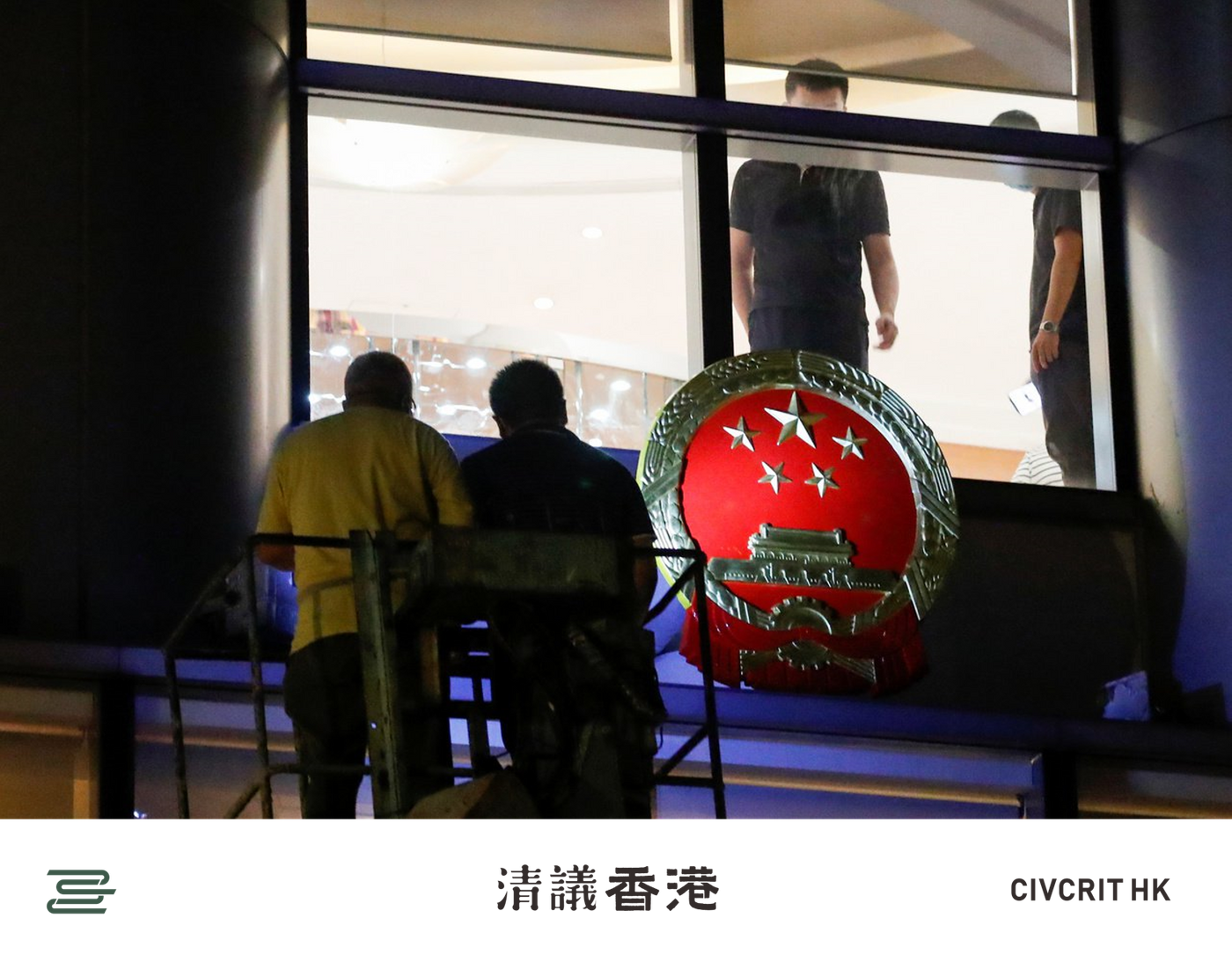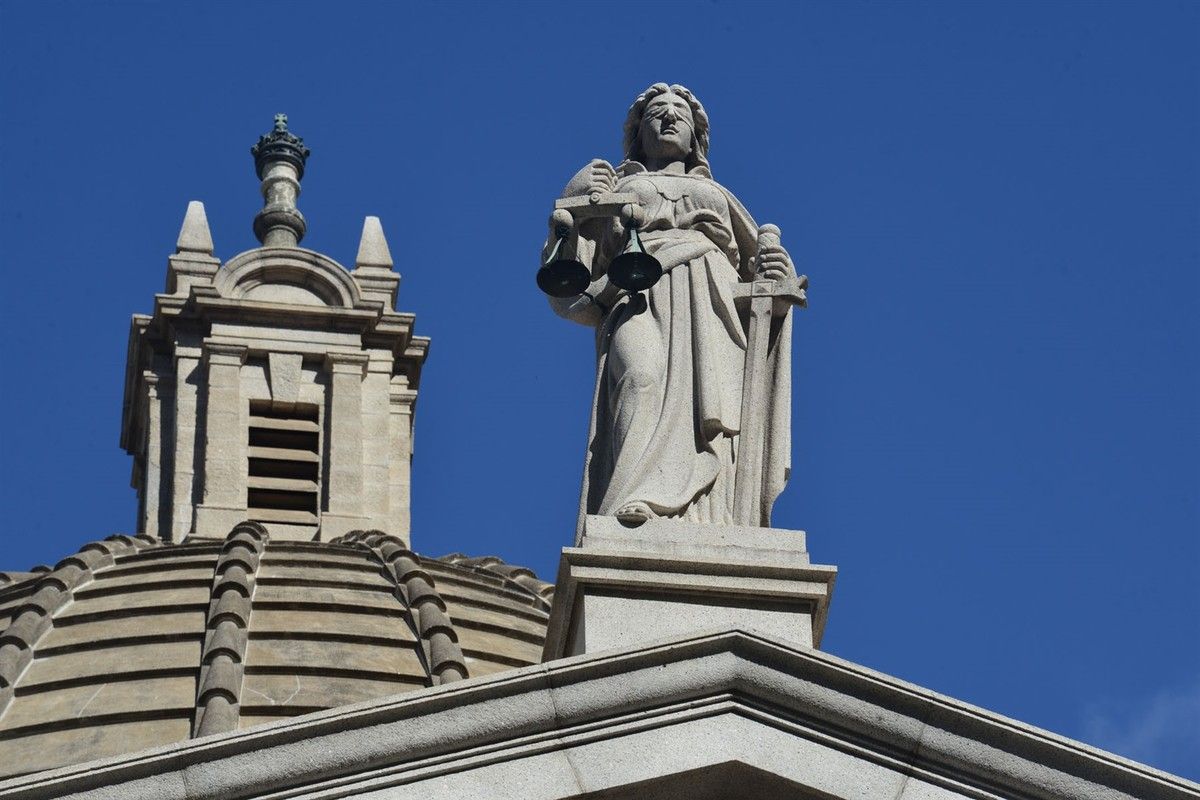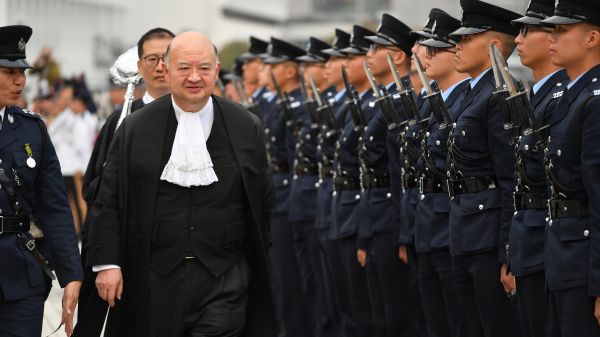Reinterpreting the "Hong Kong National Security Law": Is there any room for human rights protection and fair trial?

Editor's note: Our authors Qin Yifeng and Lin Jian wrote an article "Re-interpretation of the "Hong Kong National Security Law": Is there any room for human rights protection and fair trial?", analyzing how Hong Kong courts use the principle of the rule of law to balance national security and freedom, while pointing out the limits on the powers of Hong Kong courts.
The following is an excerpt of the article, reproduced with permission from Duan Media. Please visit the media website to read the full text: https://theinitium.com/article/20200710-opinion-national-security-law-conflict/
Text / Qin Yifeng, Lin Jian
This week, a sense of powerlessness and fear has plagued many Hong Kong people. People are worried that the National Security Law will further erode individual freedom and rights, and they are worried that they will be charged with endangering national security at any time. It is worrying whether Hong Kong's judicial system can still ensure that trials are conducted fairly and impartially once indicted.
The National Security Law will undoubtedly have an impact on Hong Kong's freedom and the rule of law. However, instead of allowing ourselves to live in fear, we must seek certainty in the midst of uncertainty, let the common law system of Hong Kong gradually digest this law, and use the principle of the rule of law in common law to protect individual rights as much as possible and the fairness of the trial. Only by better understanding this law can we continue to exercise our freedoms and rights properly.
Is the National Security Law a constitutional review?
Although the Hong Kong courts do not have the power to conduct constitutional review of the decision of the Standing Committee of the National People's Congress to include the National Security Law in Annex III of the Basic Law,[Note 1] However, when applying the National Security Law, the Hong Kong courts must have the right to interpret it. Explain and deal with possible conflicts between the National Security Law and the Basic Law. [Note 2] The National Security Law must comply with the provisions of the Basic Law, which of course also includes the Basic Law, the International Covenant on Civil and Political Rights (hereinafter referred to as "ICCPR") and the International Covenant on Economic, Social and Cultural Rights ” (hereinafter referred to as “ICESCR”) on the protection of human rights (Article 4 of the National Security Law).
However, in actual implementation, we can foresee that there will inevitably be conflicts between the two.

The Collision of Civil Law and Common Law: Can the Two Be Converged?
The potential contradiction between the National Security Law and the Basic Law is essentially a dilemma faced when balancing national security with freedom rights and checks and balances of power, mainly including the following aspects:
(1) Legal principles, rights and procedures of criminal justice
interrogation behind closed doors
Article 41 stipulates that if a national security case involves state secrets, public order, etc., it should not be tried in public, and the press and the public are prohibited from observing all or part of the trial proceedings. However, Article 10 of the Hong Kong Bill of Rights (i.e. Article 14.1 of the ICCPR) stipulates that the court may only conduct a public trial because of "the national security relationship in a democratic society, or when it is necessary to protect the private life of the person concerned, or because of special circumstances that will inevitably affect the judicial process. And to the extent it deems absolutely necessary, the press and the public are prohibited from observing all or part of the trial proceedings.” In any event, in accordance with the principle of proportionality, the court must ensure that this national security exception to the defendant's right to a public hearing must not exceed the strict requirements of the urgency of the actual situation. [Note 3]
bail
The principle of presumption of innocence is expressly stipulated in Article 87 of the Basic Law, Article 11(1) of the Hong Kong Bill of Rights (i.e. Article 14.2 of the ICCPR) and Article 5(2) of the National Security Law. Since the defendant is presumed innocent until he is convicted, in principle, the starting point is that the defendant should be released on bail. [Note 4] However, Article 42 reverses the bail principle, and seems to point out that the defendant has the legal burden of proof to present sufficient reasons to the judge, and the reason is that "it will not continue to commit acts endangering national security", as in Said "no bail unless the accused proves he is no longer guilty".
When legislation deviates from the principle of presumption of innocence, it must have legitimate and compelling reasons (eg, to prevent serious crimes against the public peace) and be proportionate. If it is ruled that imposing the burden of proof on the defendant is disproportionate, it has the right to interpret the provisions in a narrow sense (reading down), and interpret the burden of proof as the burden of proof (evidential burden). [Note 5]
Chief Executive appoints judge
Article 44 of the National Security Law authorizes the Chief Executive to designate a number of judges to deal with crimes endangering national security during their one-year term of office. Designated judge qualifications. This involves two points of contention: (1) whether the judges can conduct trials impartially and (2) whether the judges are appointed by the Chief Executive and whether the independence of the judges can be maintained.
If a judge is substantially or likely to be biased in the hearing of a case, the judge should refrain from attending, which is an important connotation of the common law rule of natural justice. In the common law, although a judge has no substantive prejudice, he must appear not to give the impression of partiality to the average reasonable person. [Note 6]
Ensuring that judges are impartial in handling national security cases is a legitimate reason, but it must not compromise the independence of the courts. When the Chief Executive exercises the power of Article 44 to appoint judges, he must not undermine the judicial independence stipulated in Article 85 of the Basic Law and Article 10 of the Hong Kong Bill of Rights. Regrettably, the Chief Executive has designated six magistrates as designated judges, but the list has not yet been announced, nor has it explained the factors and reasons for the appointment or non-appointment, so that the public has no way of knowing whether his decision complies with the above-mentioned relevant issues. The common law principle of favoritism is also incapable of proposing judicial review. [Note 7]
Expansion of police power
Article 43 of the National Security Law expands the powers of the police in handling cases endangering national security, but its constitutionality may not be challenged. There are many places in the "Implementation Rules" that expand the police's investigative powers, but exempt from judicial checks. The bigger problem is that, according to Chief Executive Carrie Lam, the provisions of the Implementing Regulations themselves are not subject to judicial review . If this is the case, the various provisions in the Implementing Regulations, including some crimes and criminal liabilities, cannot be examined through constitutional review as to whether they comply with the Basic Law.

(2) The gray area of the four major crimes
In addition to the above principles, rights and procedures related to criminal justice, the implementation of the four crimes of the National Security Law will also face the collision of civil law and common law. Many elements of the National Security Law were transplanted from the Criminal Law of the People's Republic of China. How should Hong Kong courts interpret these terms and concepts in civil law when applying the National Security Law? Furthermore, the four offences cover a wide range and affect the freedom of speech, assembly and association of Hong Kong citizens. Although national security is one of the legitimate reasons for restricting these rights in the ICCPR, how the four crimes are applied in accordance with the principle of proportionality is also a difficult problem for the court to face. So far, none of these have been definitively answered.
(3) Weakened checks and balances of power
Office of Homeland Security in Hong Kong
Article 50 of the "National Security Law" stipulates that the Office for Safeguarding National Security in the Hong Kong Special Administrative Region (hereinafter referred to as the "Office of National Security in Hong Kong") shall be subject to supervision in accordance with the law, shall not infringe upon the legitimate rights and interests of any individual or organization, and shall abide by the laws of Hong Kong. However, Article 60 also allows the Office of National Security in Hong Kong to be outside the jurisdiction of the Hong Kong SAR government when performing national security duties. To what extent are the officers of the PCPD subject to the laws of Hong Kong when performing national security duties?
National Security Council
According to Article 14 of the National Security Law, decisions made by the National Security Council will remain subject to judicial review. This undoubtedly opens a back door for the central government to fully administer Hong Kong. Since then, the central government will implement policies in Hong Kong, and it may not even be necessary to interpret the law through the National People's Congress, nor to worry about adding variables due to judicial review or Legislative Council Rab. , which can justifiably be promulgated by the National Security Committee (such as the "Implementation Rules").
Conclusion: Balancing National Security and Freedom
At least from a legal point of view, the central government cannot deny that it has legitimate interests in safeguarding national security in the Hong Kong SAR. However, the crux of the matter has always been how to strike a balance between national security and freedom. To balance national security and freedom, the key lies not only in Hong Kong citizens and the judiciary, but also in the self-discipline of the Standing Committee of the National People's Congress.
Notes
Note 1: Lau Kong Rong v Director of Immigration (1999) 2 HKCFAR 300.
Note 2: Chen Hung-yee Albert, 'The Court of Final Appeal's Ruling in the Illegal Migrant Children Case: Congressional Supremacy and Judicial Review,'(1999). University of Hong Kong Faculty of Law Research Paper No. 10722/54953, 15 -16.
Note 3: "General Comment No. 32: Article 14: Equality before courts and tribunals and the right to a fair trial", UN Human Rights Committee (27 September 2007). CCPR/C/GC/32, page 2.
Note 4: Section 9D(1) of the Criminal Procedure Ordinance. Pursuant to section 9G(1) of the Criminal Procedure Ordinance, the court only has substantial grounds to believe that the defendant will (1) fail to be remanded as the court has appointed, (2) commit an offence while on bail, or (3) interfere with witnesses or damage or Obstruction of justice does not require the defendant to be granted bail. In determining whether there are substantial grounds for believing that the above three circumstances will occur, the court may take into account the factors enumerated in section 9G(2).
Note 5: Hong Kong SAR v. Lam Kwong Wai [2006] 3 HKLRD 808; Simon NM Young, “Old Law in New Bottles: Reintroducing National Security Legislation in Hong Kong”, in Cora Chan and Fiona de Londras, China's National Security: Endangering Hong Kong's Rule of Law? (Oxford: Hart Publishing, 2020), p 214. For a brief introduction to the court's remedial interpretation of legislation during constitutional review, please refer to "Basic Law Digest Issue 13: Constitutional Remedies under the Basic Law", Department of Justice (December 2011) https://www. doj.gov.hk/eng/public/basiclaw/cbasic13_2.pdf .
Note 6: See also General Comment No. 32: Article 14: Equality before courts and tribunals and the right to a fair trial, UN Human Rights Committee (27 September 2007). CCPR/C/GC/32, p. 7.
Note 7: Article 14 of the National Security Law only stipulates that the decisions made by the Committee for Safeguarding National Security of the HKSAR shall not be subject to judicial review. It does not stipulate that the decision of the Chief Executive to designate judges is not subject to judicial review, so it is theoretically feasible.

[Telegram channel]: https://t.me/civilcritique

Like my work? Don't forget to support and clap, let me know that you are with me on the road of creation. Keep this enthusiasm together!